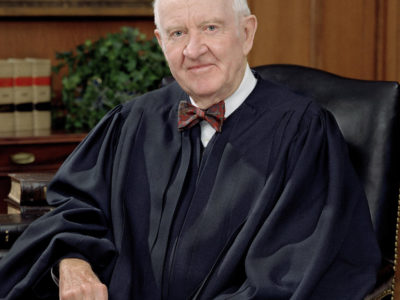A Sense of Urgency at COP 23
Guest post by Alexandra Gay, UCLA Law student

Christiana Figueres, the former Executive Secretary of the UNFCCC who is widely credited with the success of COP 21 in Paris in 2015, launched a global initiative earlier this year called Mission 2020. The overall goal of the initiative is to ensure that global CO2 emissions reach a “turning point” by 2020 and begin to decline (drastically) over the following decades so that the world can achieve zero net emissions by 2050 and can meet the Sustainable Development Goals laid out by the UN. Ms. Figueres participated in a panel discussion on Tuesday in which she discussed the urgency with which the world must act to precipitate a “just transition” to a decarbonized economy. She cautioned that if emissions don’t peak by 2020, the pathway to meeting the 2 degrees (and the more ambitious 1.5 degrees) of warming limit enshrined in the Paris Agreement becomes radically more difficult and more disruptive.
Hanging heavy over the panel discussion was the recently released report from The Global Carbon Project which estimates that global annual emissions will have actually risen by two percent by the end of 2017. Also hanging (sort of like a Piñata) over the panel and over the COP more generally are Trump and his administration’s rejection of the Paris Agreement and refusal to take action at the national level to reduce emissions. Ms. Figueres, demonstrating her renowned optimism, assured the panel audience that, despite these setbacks, the global community can meet the goals set out by Mission 2020 if we can create and then take advantage of a mass political moment, as was created, in her estimation, by the signing of the Paris Agreement. She and many others at this COP have repeatedly emphasized the importance of building and sustaining political momentum. It seems to me that, on that front, California is taking the lead.
Governor Jerry Brown and former Governor Arnold Schwarzenegger, as Prof. Horowitz mentioned in her blog post, were all over the COP. They were working, of course, to show that U.S. states are acting on climate but also, it seems, to generate enthusiasm and resolve for aggressive global action (though Jerry Brown also generated quite a bit of criticism related to his failure to curtail oil and gas production in California). Gov. Brown and Christiana Figueres both spoke at an event about the goals and promise of Global Climate Action Summit, which California will host in San Francisco in 2018. The Summit, the brainchild of Jerry Brown, will bring together subnational leaders as well as businesses, scientists, and nonprofits about two months ahead of COP 24 in Poland. From what both Gov. Brown and Ms. Figueres expressed at the event, the hope is that the Summit will generate momentum going into the COP, which will likely be a significant one as parties are meant to finalize the Paris Rulebook there.
According to Brown and Figueres, and almost all of the climate scientists that I’ve heard from so far, the next few years are critical. If governments fail to act and all Paris enthusiasm dissipates, it will be nearly impossible to hold warming to two degrees. If, however, we can, as Figueres prescribes, generate a mass political moment that encourages (or forces) governments to take aggressive steps to curb emissions, we might be able to halt warming. We don’t have a galvanizing president in the White House, but we do have a Jerry Brown in the California Governor’s Mansion, and his reach is far.
Alexandra Gay is a second-year law student at UCLA School of Law, attending the Bonn COP 23 climate talks as part of the UCLA Law delegation. The views she expresses here are her own.







Reader Comments